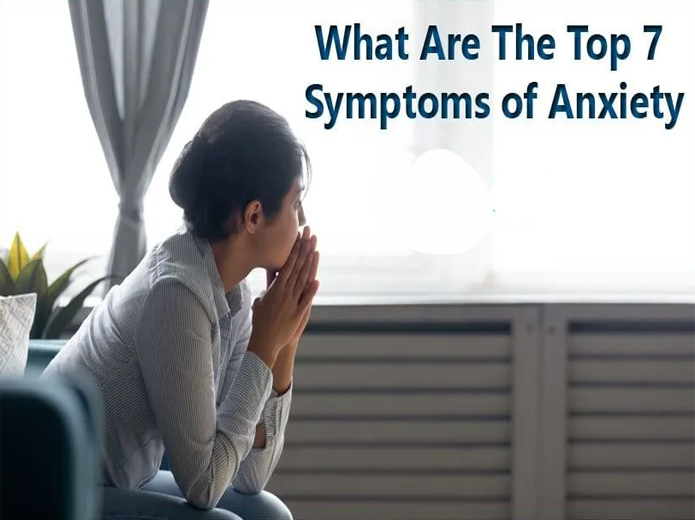Anxiety is an emotional disorder that is a feeling of fear, dread, and uneasiness. The occasional anxiety tends to be a normal part of life. It is your mental and emotional reaction while having stress and tension warning the sufferer of the ultimate danger ahead. It is a disorder that seems to be a repeated feeling of having stress and fear due to some emotional pressure.
Anxiety includes panic attacks too which last longer than expected and are tougher to handle as the feelings are uncontrollable. These emotions can attack any age group whether a child, a teenager, or an adult. There are many kinds of anxiety disorders which include generalized anxiety, social anxiety also known as social phobia, specific phobias, and special anxiety disorder. There are many cases where even in anxiety disorder, the patient needs the doctor’s attention for the treatment.
Many symptoms show that the person is suffering from an anxiety disorder. Those symptoms must not be avoided to treat the anxiety in a proper manner and way. Avoiding the symptoms might lead to dangerous results. The symptoms are :
- Feeling nervous, restless, or tense
- The feeling of impending danger, panic, or doom
- Increased heart rate
- Breathing rapidly (hyperventilation)
- Sweating
- Trembling
- weak or tired
- The problem in concentrating or thinking about anything other than the present worry
- Trouble in getting relaxed sleep
- Experiencing gastrointestinal (GI) problems
- Having difficulty controlling worry
- Continuation in having the urge to avoid things that trigger anxiety
Many anxiety disorders can be classified and must be known who might think that he is suffering from the above-listed symptoms.
Generalized Anxiety – This common anxiety includes when the person continuously feels stressed about the situations and even the daily routines. This happens when the person is unable to control his feelings and go deeper into the situation or thoughts which might lead to an anxiety attack.
Panic Disorder – This disorder includes the repeated feeling of intense anxiety which can reach its maximum which minutes and does not make the person aware of it and stay calm. The symptoms might include, pain in the chest, shortage of breath, and heart-pounding.
Selective Mutism – This happens when the person is normal talking to their family and loved ones but cannot speak properly when in a social group like being in school, work, or social functioning.
Social Phobia – This is characterized by the fear of being exposed to a specific object, place, or group of people. It might provoke a panic attack in some people.
There is more to this list.
THE 7 RISK FACTORS THAT CAUSE ANXIETY
The risk factors which can cause anxiety disorder are as follows.
Trauma – The children who face traumatic situations or issues might lead to anxiety in them. Adults might also develop this type of symptom.
Illness causing Stress – Anyone’s bad or worst health conditions might affect the mental being and attract the stress to one’s health. This stress turns into anxiety real quick.
Drugs of Alcohol – The usage of drugs or alcohol might cause anxiety.
Personality – The person with some specific personality might get affected by anxiety.
Inheritance – The person might get affected by the anxiety when he has the same in this family or inherited from the family.
Mental disorders – People with issues like depression might often face anxiety disorder during those conditions.
Brain Chemistry – the researchers say that anxiety disorder might be linked with a faulty system where the brain can’t control emotions.
There are some preventive steps to avoid the Anxiety and panic attack
Those preventive steps include the following :
Avoid drugs or alcohol – One must avoid the usage of drugs or alcohol where it can hit hard to the anxiety level.
Stay Active – Indulge yourself in some kind of activities which can make you feel good enough. Start making and developing the social interaction which can divert you from thinking about the worries in your life whether it is a small or big ones.
Get the Help Early – Any disease which gets late in getting the treatment can be dangerous. Make sure you get the treatment as soon as you find it about the anxiety.

Leave a Reply